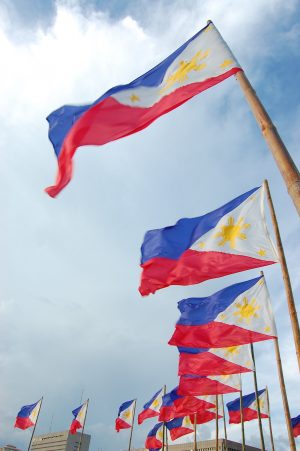News about last month’s coup d’etat in Myanmar prompted solidarity actions in Manila, which became more frequent after the Philippine government dissociated itself from the United Nations Human Rights Council statement expressing concern over the actions of the Tatmadaw.
The statement of the Department of Foreign Affairs (DFA) on February 12 mentioned the popularity of State Counselor Aung San Suu Kyi among Filipinos. “The Lady is a deeply and widely admired icon of democracy among the Filipino people who identify with her and her people, given similar struggles against tyranny in the not distant past,” the DFA statement said.
It made reference to Myanmar’s anti-junta struggle and the Philippines’ anti-dictatorship movement which led to ouster of former strongman Ferdinand Marcos in the 1986 People Power uprising.
Yet it also rejected a U.N. statement which called for the release of Aung San Suu Kyi, whom Filipino envoys praised for her “unifying role” in Myanmar.
The DFA described the U.N. action as a violation of Myanmar’s sovereignty and territorial integrity: “The Philippines cannot stress strongly enough the primacy of national internal efforts towards democratic reforms, and never by the imposition of foreign solutions whether in regional or multilateral contexts, including through this Council.”
Secretary of Foreign Affairs Teodoro L. Locsin summarized the proposal of the Philippine government: “The realization of this democratic process can only be achieved through the complete restoration of the status quo ante.”
He repeated this line in a statement issued on March 2 and specified exactly what restoring the status quo ante means. “The first step should be for the immediate release of Daw Aung San Suu Kyi and subsequent dialogue among the parties involved in their country’s destiny,” Locsin said.
In refusing to support a U.N. statement on the coup, Locsin and the DFA have criticized the “calumnies from the hypocrites of the West.”
Filipino activists were quick to denounce the actions of the DFA and pointed out that the same argument was used by the Philippines government in attacking U.N. experts who had signified their intent to probe the human rights violations committed by the administration of President Rodrigo Duterte. Indeed, Duterte’s envoys have been consistent in questioning the right of U.N. to “meddle” in the internal affairs of countries like Myanmar and the Philippines, both of which are accused of committing grave abuses against their people.
In pushing for the release of Aung San Suu Kyi, Locsin disparaged the civil society leaders who had earlier pushed for reforms in the National League for Democracy-led government. “We have hit back hard at her pro-democracy and human rights critics — not a single one of whom has done anything at all for democracy and human rights; let alone as much as she has at great risk to her life and with great loss in her life.”
But Locsin had no critical remark whatsoever for the Tatmadaw, which ordered the detention of Aung San Suu Kyi.
Locsin furiously criticized Western imperialism but could not utter more than a plea for dialogue addressed to Myanmar’s security forces.
Perhaps he and the DFA could do no more since any allusion to Tatmadaw’s human rights abuses could trigger counter-accusations about the closing of civic space under the Duterte presidency.
Asked about a coup taking place in the Philippines, Defense Secretary Delfin Lorenzana quickly dismissed it as a possibility since the military is fully supportive of the president. Some analysts commented that a coup is not necessary since Duterte could simply preside over a meeting of his Cabinet dominated by retired generals and military officials.
That is why the anti-coup protests in Manila are not only organized to show solidarity with Myanmar’s pro-democracy movement but also an indictment against the militarization of the Philippine bureaucracy, extrajudicial killings perpetrated by security forces, and even China’s tacit support for the junta in Myanmar and impunity attacks under the Duterte regime.
The DFA statement noted that the struggles in the past led by Aung San Suu Kyi “culminated in the complete restoration of democracy” and “inspired similarly successful efforts in the rest of the Cold War world.” What it failed to acknowledge is that the struggle is an ongoing democratic transition whose gains have been suppressed and reversed by the recent coup. It reduced the global voices in support of the struggle as unwarranted interventionism, in order to preempt any similar effort to take aim at the equally alarming human rights situation in the Philippines.
The embarrassing actions of the Philippine government have been repudiated by democracy-loving Filipinos in several solidarity actions. This is not enough to end the coup but hopefully it can reach Myanmar’s protesters and assure them that Filipino activists are doing their part in challenging the authoritarian government of Duterte.

































